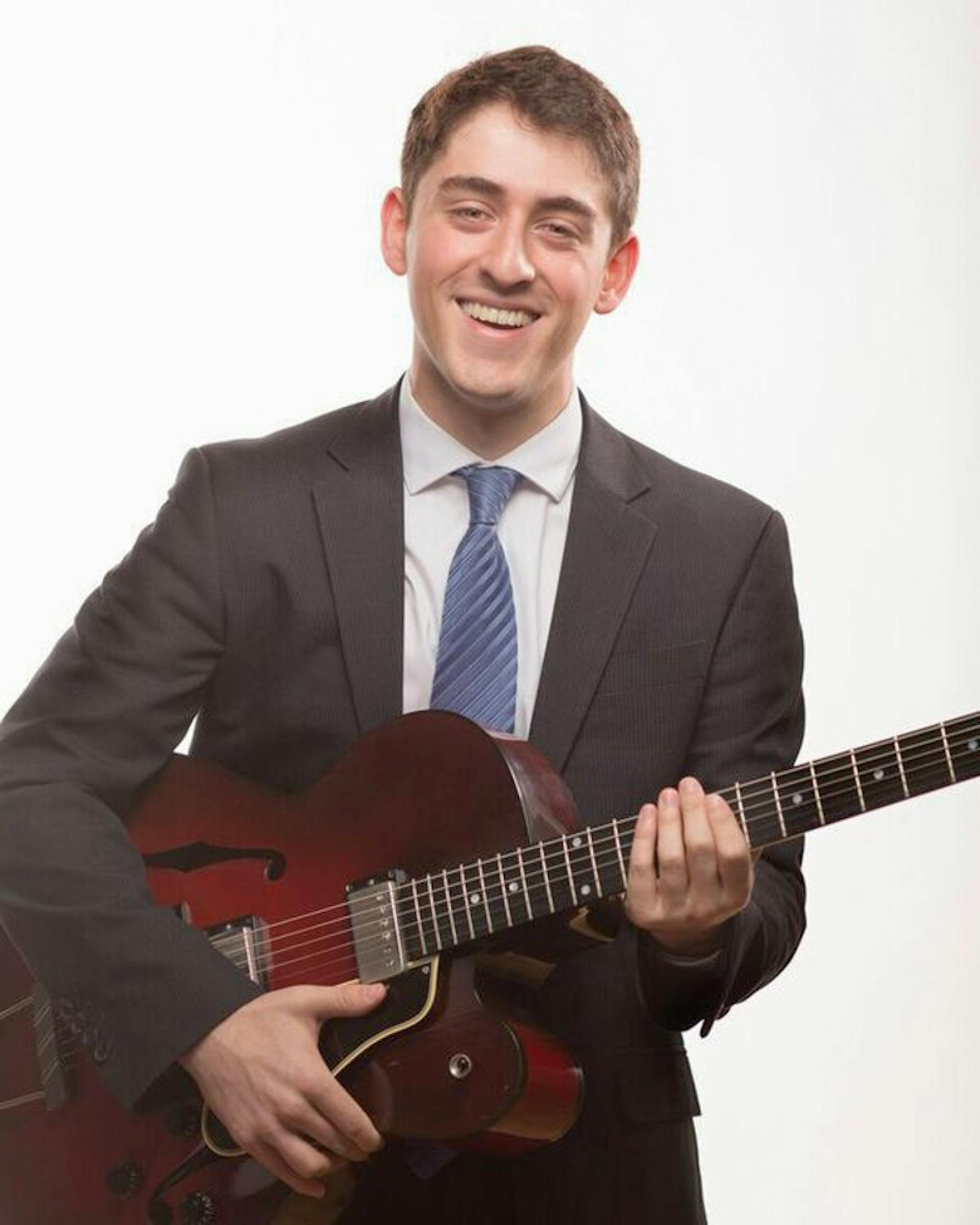Michael Blum ’15 is a jazz guitarist who is already making waves in the music industry. In 2015, he was named the Rising Star Guitarist in DownBeat Magazine’s 63rd Annual Critic’s Poll. His newest recording, “Chasin’ Oscar: A Tribute to Oscar Peterson,” will come out next month, and his follow-up jazz fusion project will be titled “Expansion.” He has collaborated with jazz and classical musicians such as John and Jeff Clayton, Eddie Gomez, Joe Hunt, Michael Manring and Gary Karr.
Could you tell me a little bit about your time at Dartmouth?
MB: I was in the Dodecaphonics all four years, and I loved that. Throughout the years, I had a few experiences that played a role in my decision of pursuing music. I played in the pit orchestra for the musical “Hairspray,” and many musical directors gave me opportunities to pursue jazz more seriously. Those probably led directly and directly to me pursue creating the album.
How did your interests in guitar and jazz music begin?
MB: I’ve been playing guitar since I was about eight, and my dad also plays. My family has pictures of my dad and I playing. In those pictures, we’re mirroring each other and I look like I’m about six or seven. I first got interested in jazz music because it was always around my house. The way that I got into jazz was by listening to it, and I stuck with it because it presented a challenge to me. Jazz presents different challenges than other types of music, because a jazz musician needs to be equipped with the skills to improvise.
Could you describe the process of recording an album?
MB: Well, each recording session is pretty much a live take, and it’s usually not more than one take. For this album, it’s four musicians in the studio, and the engineer will be there. A lot of it is improv. For this specific album, “Chasin’ Oscar: A Tribute to Oscar Peterson,” the music was much more difficult than what we’re generally used to — we got together twice before recording in the studio.
What is the inspiration behind this album?
MB: It’s a tribute to Oscar Peterson, a pianist [who] was known for his ability of playing very fast. I thought the best way to pay tribute to him was to play his music. This album is unique because many of the songs and solos on the album are recreations of Oscar Peterson’s music on the guitar. And to my knowledge, I don’t think that’s ever been done before.
How do you deal with the uncertainties of the music industry?
MB: A majority of my peers are in a totally different line of work, and I see the comparison [between different lines of work] all the time. There is uncertainty, but that is what makes it fun. Someone once told me that once you start feeling secure in life, that’s kind of when you stop growing, when you stop seeking more. So yes, it is uncertain and it’s taken some time to get comfortable with [the uncertainty], but it’s what I love to do, so I wouldn’t trade it for anything.
Where do you see yourself 10 years from now?
MB: I think 10 years from now, whatever I’m playing, I hope I’ll be impacting people on a personal level. That is the goal of my music — getting people to feel and think differently.
As a musician, how do you define success?
MB: Well, I think that if I’m affecting other people, and I’m impacting other people on a personal level, then I’ve achieved some success. I think rejection is probably the thing that makes me question myself the most. When I call up a club manager and they say there aren’t spots for me to perform, or when a reviewer doesn’t like my music, it’s challenging. I don’t think I can convince myself to stop feeling down. The only thing I can control is making more music, and after doing playing and creating more, I stop thinking about that one criticism until another one comes up. I guess the remedy is to get back up on the horse and not let [criticism] pull you down.
You’ve recently been named the “Rising Star” Guitarist in DownBeat Magazine. Are there any new expectations that come with this recognition?
MB: I don’t think it’s added any more pressure or changed the kind of music or the level I play. Mostly it’s been a positive thing, and it’s helped me in times where I feel I’ve sunk into a slump because I have a plaque sitting on my desk encouraging me to keep going and affirming that I should be doing this.
You recently graduated. Any advice to the outgoing senior class?
MB: I don’t want to be preachy or sound cliché, but try as much as you can to not compare yourself to your peers. You never know what other people are feeling. Just make decisions for yourself, and stay true to yourself.
This article has been edited and condensed for length and clarity.




